Digital Gold
Bitcoins Transformation

Key Takeaways
- •Bitcoin has evolved from a peer-to-peer payment system to a global store of value and offers advantages over physical gold in portability, divisibility, and verifiability.
- •Gold's value is primarily extrinsic, based on collective belief rather than intrinsic utility.
Bitcoin was initially intended to be a peer-to-peer medium of exchange, although its narrative has switched to that of a global store of value.
Few are arguing for Bitcoin to serve as money, meaning there is little need for an inherently volatile asset to be used for payments, but there are many compelling arguments for it to serve as a store of value compared to Gold.
Inflation
Inflation is the rate at which the general price level of goods and services rises. Financial regulators play games with how they measure it, and it's a tool in their arsenal to manipulate the value of their debt over time. It allows them to pay back their debt with less value than they borrowed and keep the difference as profit. Over time, this leads to a loss of purchasing power and increased asset prices, benefiting asset owners (wealthy people) and mainly impacting the working class at the cash register.
Traditional financial systems have been plagued by inflation for centuries. The US Dollar, the world's most dominant currency, has lost 97% of its value since 1913. To help the public fend off inflation, the government allows people in the know to purchase bonds that pay a fixed rate of return. This return has typically ranged between 2-4% during my lifetime, and banks capitalize on the spread between the rate they pay users in savings accounts and the rate they receive from the government by using dark practices in their software. At one point, interest rates were over 2%, and the savings rate on my JPM Chase savings account was 0.01%.
This tweet details other tactics banks use to ruse the unknowing.
Stores of Value
Money serves three purposes - unit of account, store of value, and medium of exchange. If it can't be used to buy things, it's not money. If it loses value over a year, or a day, or an afternoon - as the German population experienced in 1923 When Money Died - it's not money.
Rather than hold onto, for example, the Turkish Lira or South African Rand and have their spending power decline non-trivially, many have fled to BTC, USDT, or other cryptocurrencies that enable pseudonymous, secure transfers of value and opportunities for capital appreciation. Cash is king, and USD is cash; everything else is priced against and dependent upon it. When compared to USD, you don't want your national currency to rise in value because it takes more of your currency to buy the same amount of USD.
The Turkish Lira has lost most of its value since 2018.
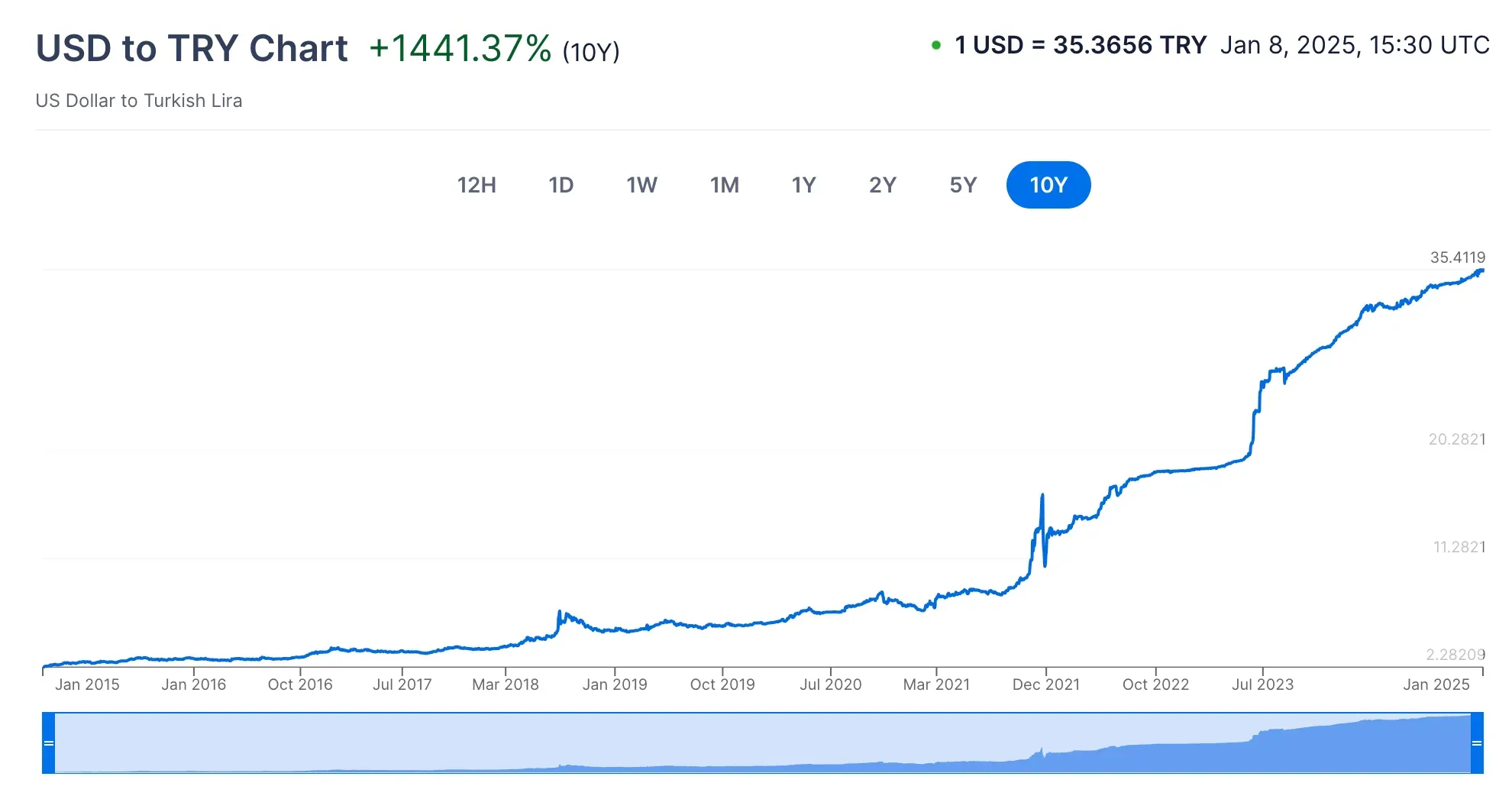
The South African Rand has experienced extreme volatility over the past decade.
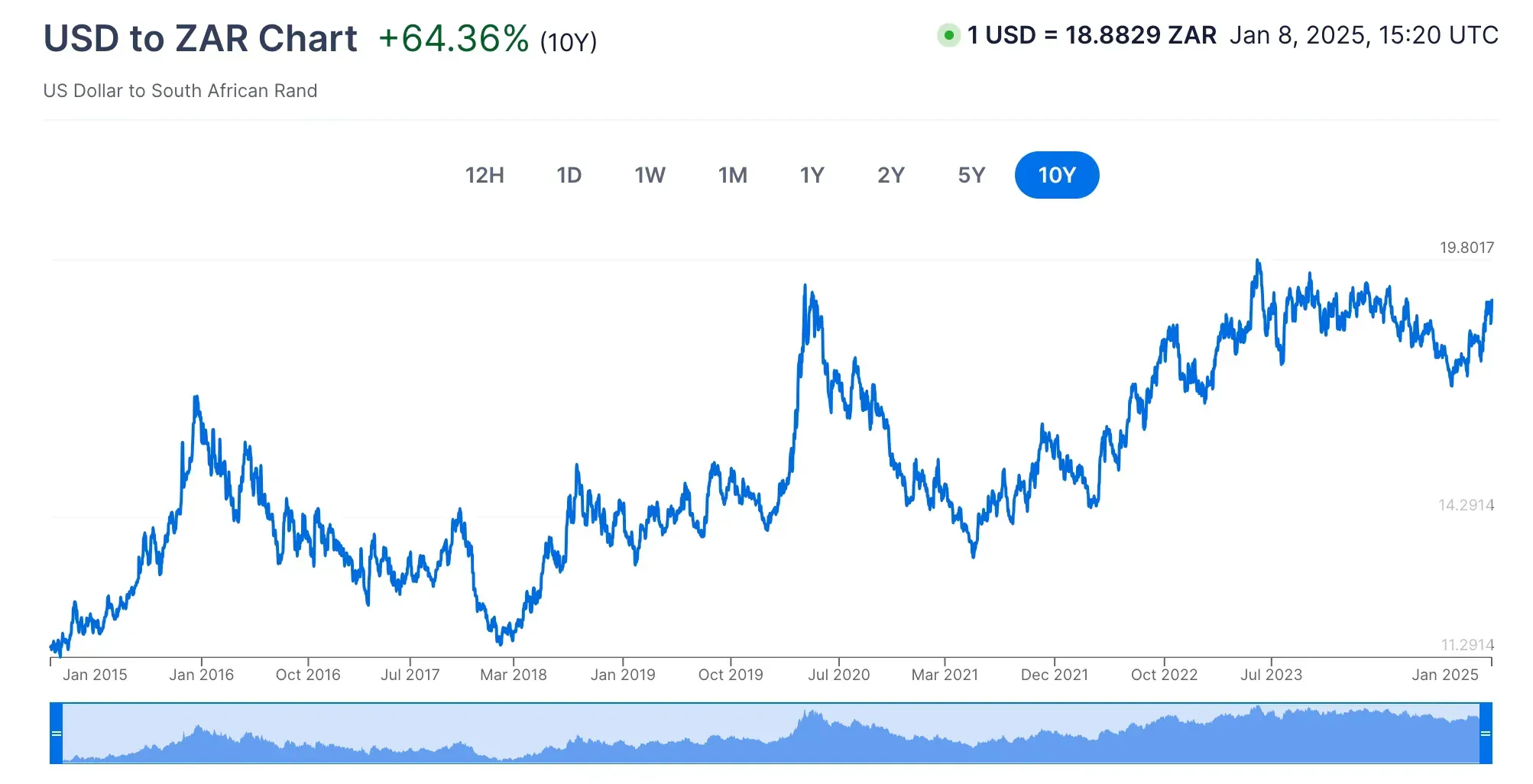
Bitcoin holders outperformed everyone over the past decade with a low of $0.0041, when someone spent 10,000 BTC on two pizzas totaling $41 on May 22, 2010, and a recent all-time high of $108,077.

USD holders in shambles.
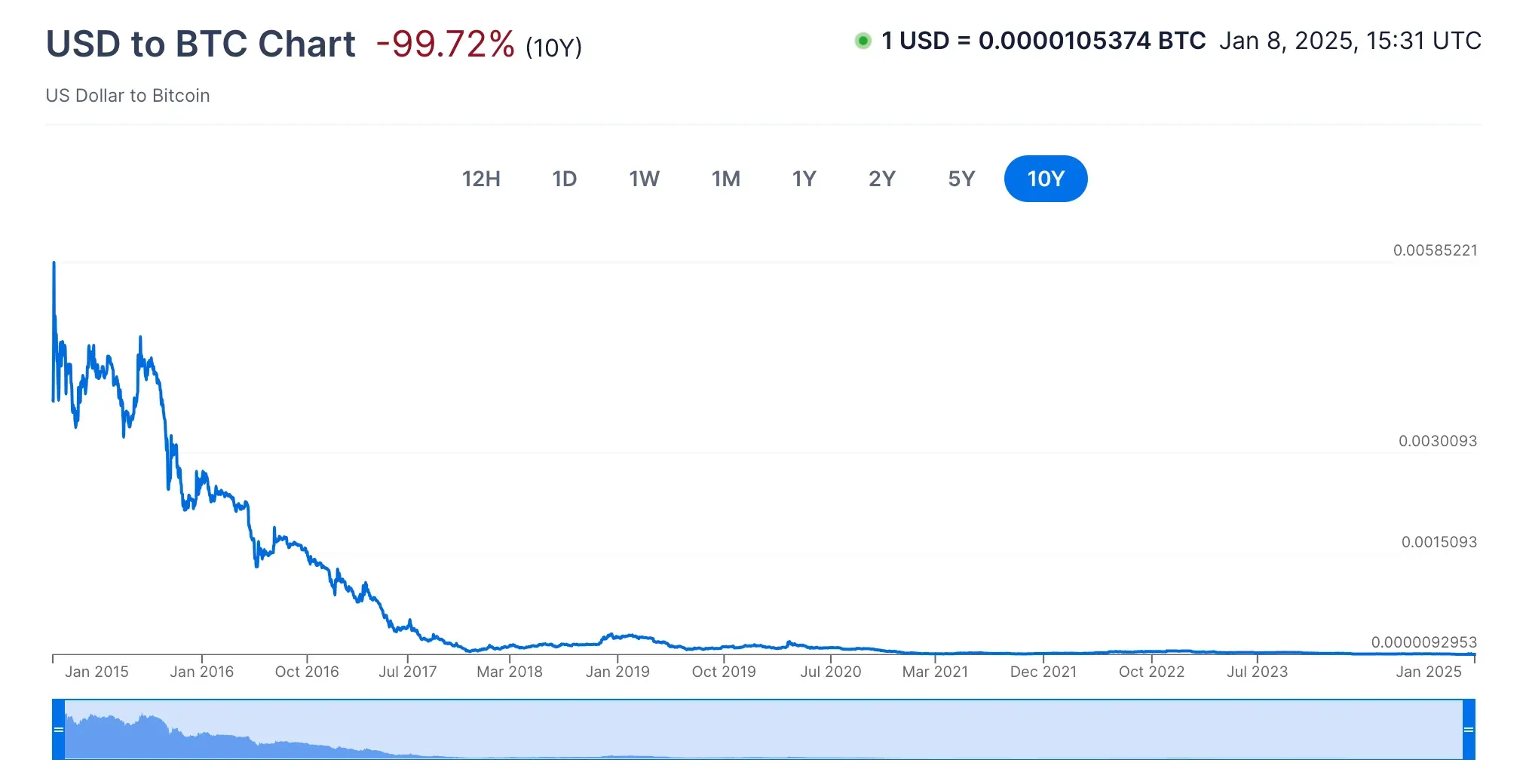
Gold
Physical Gold bars have historically outperformed most assets during periods of economic strife. As a result, Gold has become a haven asset in the eyes of asset managers. It's important to understand that money flows from speculative investments to safe-haven assets doesn't happen automatically. It's a result of trader psychology being influenced by mimetic desire, and it often happens slowly, then all at once - a phenomenon is known as a "mimetic contagion."
Besides its use in jewelry and select manufacturing, Gold is perceived to exist outside of the traditional financial system. However, banks are the largest owners of it, and derivatives are frequently used to manipulate its price.
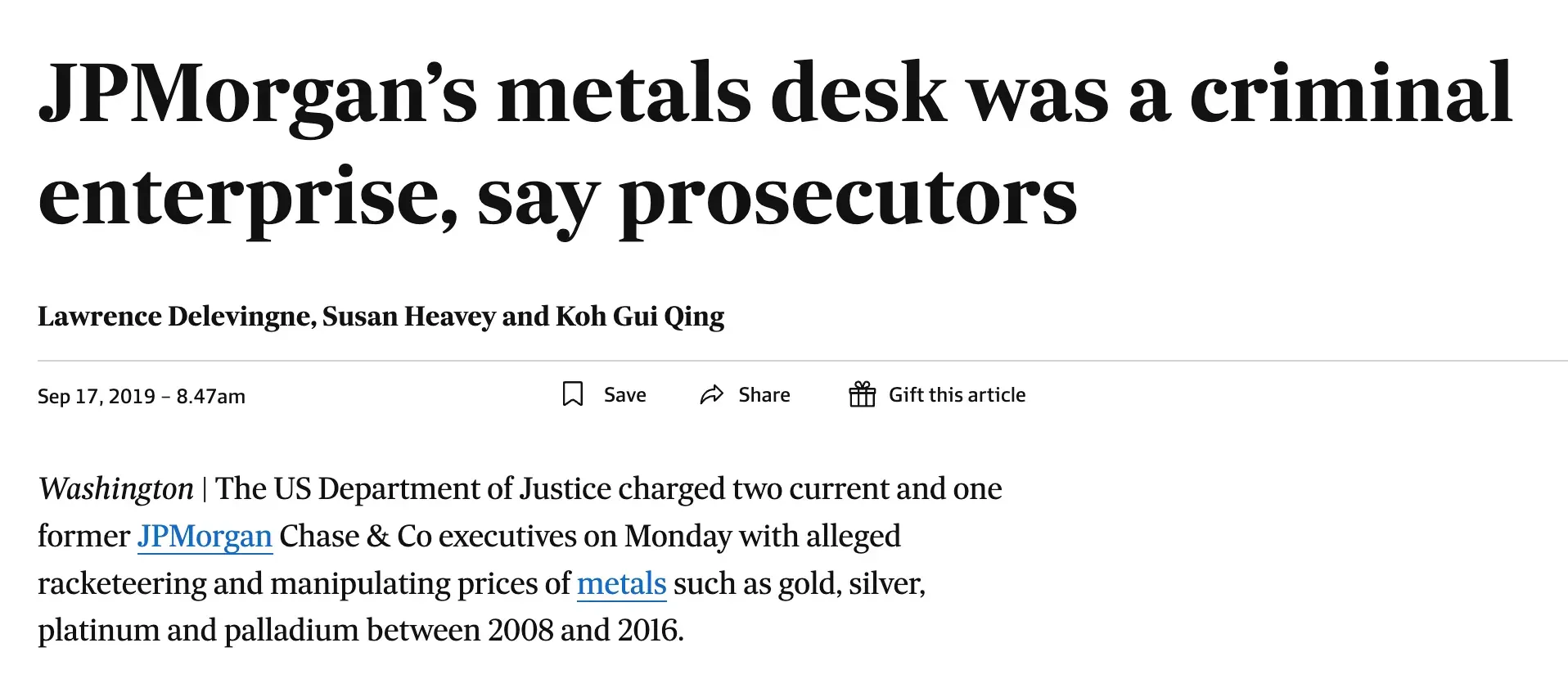
Digital Gold
Investors and mainstream media pundits have referred to Bitcoin as digital Gold, partially because that's the most digestible explanation they can come up with for its success and partially because it's true.
| Feature | Physical Gold | Bitcoin | | ------------- | ---------------- | -------------------- | | Portability | Limited | Excellent | | Divisibility | Limited | Highly divisible | | Verifiability | Requires Testing | Instant, Certain | | Transfer | Slow, Expensive | Near-instant, Global | | Storage | Physical | Digital | | Scarcity | Limited | Limited |
Extrinsic Value and Mimetic Desire
Even though Gold has performed well in the past during times of distress, this rise in value is not based on any fundamental, intrinsic characteristic. Gold is not easy to transport or store, especially at scale. Due to the large number of industry players, Gold is a very centralized commodity, and the price generally moves because of a fluctuating extrinsic value. Someone will see that someone else has Gold and want it because they want to be like them or share in the upside of their idea.
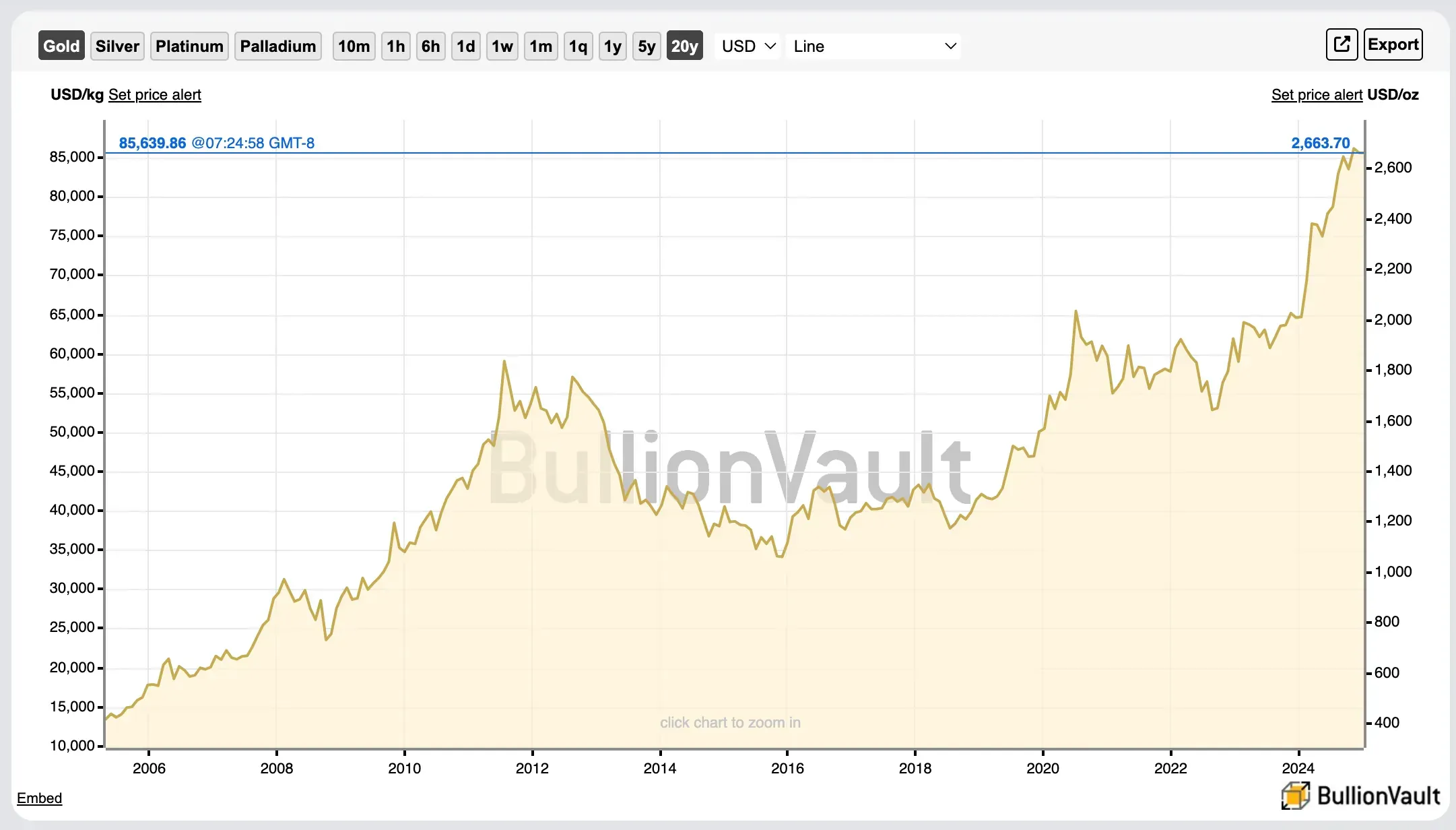
Quite the cup and handle there.
Counterarguments to Bitcoin's Scarcity
In its current state, Bitcoin should not be cash because it should not be used for payments due to its volatility. There is validity in the argument to have a decentralized central global currency (DCGC), but the practical solution for the time being is to remain on the USD standard. Michael Saylor is projecting a devaluation in the USD and a state of hyperinflation in the coming years while also centralizing the ownership of the world's digital gold reserves into his own and Wall Street's hands. That's introducing new variables.
Instead of serving as a payment mechanism, Bitcoin could serve as a store of value because of its multiple advantages over Gold, listed in the table above. Scarcity is a key component of both Gold and Bitcoin's value, and while Gold's scarcity deals with factors like mining, metal streaming, (asteroids), and institutional concentration, Bitcoin's scarcity deals with a few lines of code.
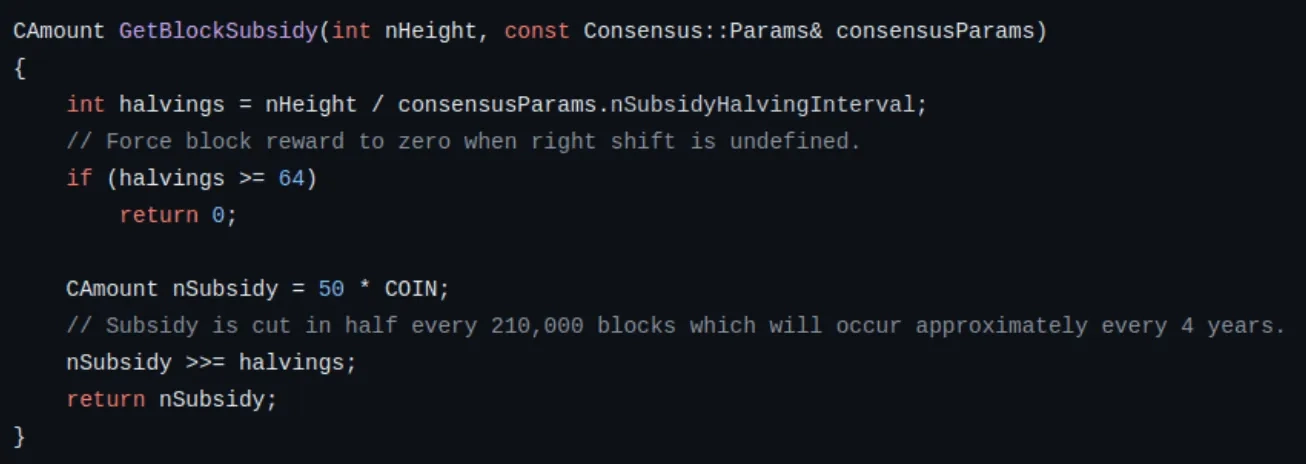
A handful of developers can change the code's underlying rules. Any change requires consensus among this group, and currently, there is a rule defining that there will only ever be 21 million BTC. Most of those BTC already exist, and the last will be made public around 2130. If everyone in that group of developers agreed to change the rule and create more BTC, there would still be a need for the majority of computers on the network to update and validate the new supply. BTC's verification process - mining- is an expensive undertaking, and the costs involved have resulted in a few mining pools controlling most of the network's validation.
While it could be changed, it's not in the interest of the developers, miners, or the network for more than 21 million BTC to exist, and it will likely not happen without a catastrophic event. However, I believe the most primal hacking method, the "$5 wrench attack", poses a real threat to the Bitcoin core group of developers and capital-heavy mining operators around the world, as exemplified by the recent kidnapping and cutting off of the Ledger CEO's finger.
Food for Thought
Although Gold hasn't been a practical currency for hundreds or more years, big banks and portfolio managers recommend it as a safe-haven asset worth 1-5% of a your nest egg. Gold will store value until it doesn't. If rarity or scarcity is the dominant argument, there are more scarce assets on this planet that could quickly replace Gold if the narrative shifted—Bitcoin is one of them.